warning a storm warning the butterflies in my stomach announced the summer plan to intercept continuous distance hair fell on hair the sky turns red as if it knows everything in advance my hair fell for the first time on your comb which you will never use again Basement Human is the basement of the toilet room Tenement maze of history and stories No animal in the world has ever died for its cage before No animal has invented aerial bombs To first Octobers number Suck my death an unborn kitten is knocking at the church of a torn belly the future flows like sperm from the wall of the gateway my dead lover gets stuck in my throat where his cock used to hide during blowjob I dream of having my throat fucked by a nuclear bomb I dream in my dreams that instead of a strap-on a hydrogen bomb will stick out of my ass I know that god will not pour anything into my balls during a handjob mosquitoes and military pilots meanwhile fly towards the scent of blood not a single military man gave me flowers only somewhere in the dark a muscular sergeant said: hey fag suck my dick like before death what if the ammunition depot where I'm already being fucked by a group of soldiers will explode from the fact that I'm so hot and sexy suddenly I will destroy the army and piss all the military factories with my blood suddenly I really will be fucked in a minute by the last soldier in the history of mankind in the meantime they fuck me in all the cracks and call me a fag I wonder if the soldiers have wives I wonder how many lovers smeared the mouths of soldiers' wives with sperm I wonder how many soldiers kissed their wives on the lips after that I wonder how many nuclear bombs are produced in secrecy I would like to grow longer hair and dye it blonde the truth is hidden in the details of my anus god fuck us all with your voice we are tired of the silence of the red buttons after which a nuclear explosion will follow after fucking a new nuclear bomb will be born in me [?] Brown town In the heart of earthy hues, Brown town, A needle threads life's tapestry, Brown town, A need, a yearning palpable. People encircle, form clay figures, Silent echoes of existence, Seated, molded by time's unseen hands. Within, dwell stories untold, Brown town, Clay figures poised in quiet contemplation, Sculpted reflections of shared moments. my lover asked my lover asked me when i first saw porn it would be better if he asked something simpler, like how many times we quarrel with my husband (sometimes it seems to me that love is too abstract a word for our painfully non-abstract world) my lover finally pissed me off when he started talking about the non-binary nature of human nature - I call you bitch to suck and not destroy our homosexual intimacy with the philosophy, fag, - I said to my lover while he turned into a statue my lover is a beautiful antique statue but alas the statues don't have blood my professional skills as a bloodsucker are now in question my lover its: not reacted to my bites and slaps for a day it seems to me that he sailed away into the cast-iron tunnel of the night it seems to me that my lover dreams of flowers in ball gowns and without graves death knocked on the back of the room and asked: whose house is this? and this ruined house is now a ruin the anti-missile installation of the heart has failed the night in the eyes of my dead dead man will no longer dissolve even explosions won't wake my lover red sky like a bud revealed death god's assistant pressed the wrong button again аll in vain We Free Freends Friends French fries With self burger We distance We running Running away from each other vegetable garden my body is a vegetable garden in which nothing grows we're all hungry without the smell of fresh meat and cum generals fuck tomorrow's dead for free saving on prostitutes sun umbrellas and winter sleighs are in vain sho(r)t (hi)story I want the last nuclear bomb to explode inside my ass the sun warms the cold body of my lover shot by dawn the trenches are screaming but no historian will tell about our buried feelings in the future the stones are screaming but only the wind drowning in the river will tell about our buried lovers No title the station of tears breaks out and thirst falls from the inside of the heart let's go to my house, drink my blood, burst my capillaries, tear my ass, tear out my tonsils meanwhile god's deputy keeps pushing the wrong buttons onlyfa the steak burned inside my stomach the gun kills me but nothing will come out of my vagina we drink only sperm my eggs and balls strive for your grape nipple still life of the world during the continuous noise of a siren we drink only tears one cocku you drink the silence of my moan and I feel uneasy about spring which hasn’t come either part-time part-time job being naked in the pristine ruins of houses
Author Archives: Synchronized Chaos
Poetry from Kahlil Crawford
Telepathikontinuum The junglist diaspora, fluctuations in rhyme generating whirling ⟳ cross-joint conscience between pulsating vibes ecstatically reverberating baroque riddims... Clear cathedrals emit generational silence, abstractions of sound - black breaks blind lust-filled nights, pulsed syncretism truth beyond means.
Poetry from Ilhomova Mohichehra
Love to family
My love to my family,
To my brother, sister, mother.
A piece for my dad too,
My way is a sidewalk.
I honor my father,
I respect my mother.
My brother and sister,
Of course I care.
Abdurrahman, Umida,
He respects me.
With kind words to me,
He tasted honey from his tongue.
Daddy loves me
He caresses and hugs.
what i say will do
What can I say?
My mother is kind,
Every word has magic.
My mother is my only one
The whole world is one piece.
My sister is surprised
My brother is a wrestler.
Inspiration cries to me,
A propeller in my head.
My family is my happiness
My throne in the world.
“Family is the holy place”
The words madhim-ku.
Ilhomova Mohichehra is a teacher of the 8th grade of the 9th general secondary school of Zarafshan city, Navoi region.
Prose from Brian Barbeito
excerpted from
THE LINN JOURNALS (Luna, Indy, and Nova Notes, Dog Walking Documents)
(Sand and Stride)
Day Two, Part Two
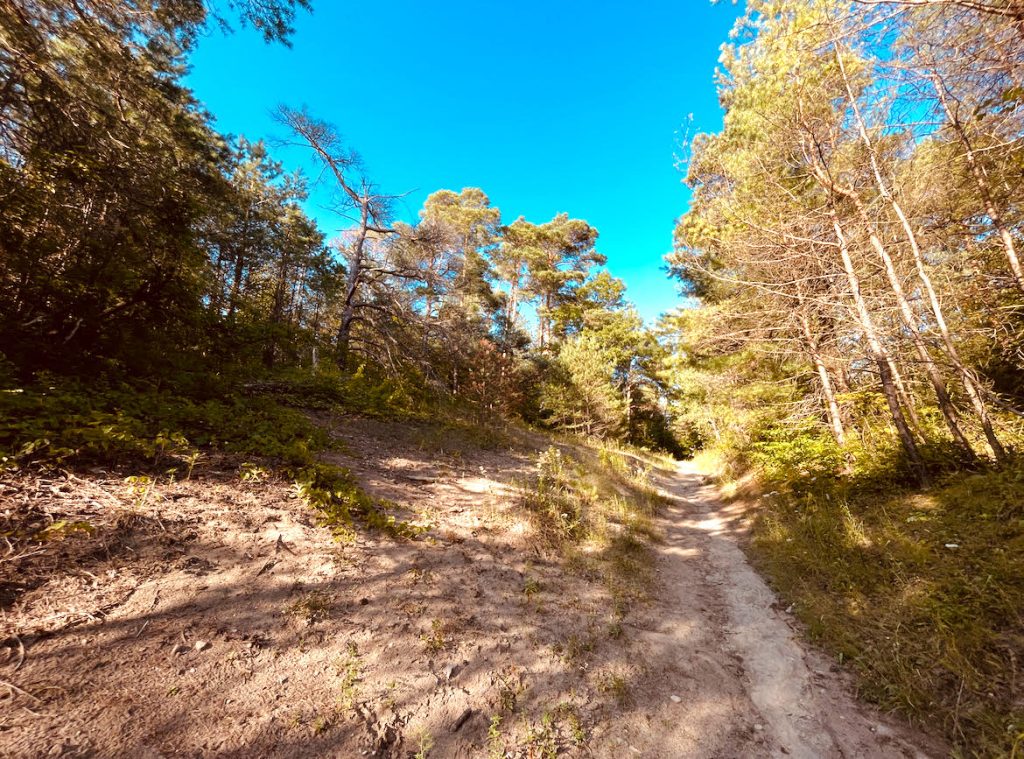
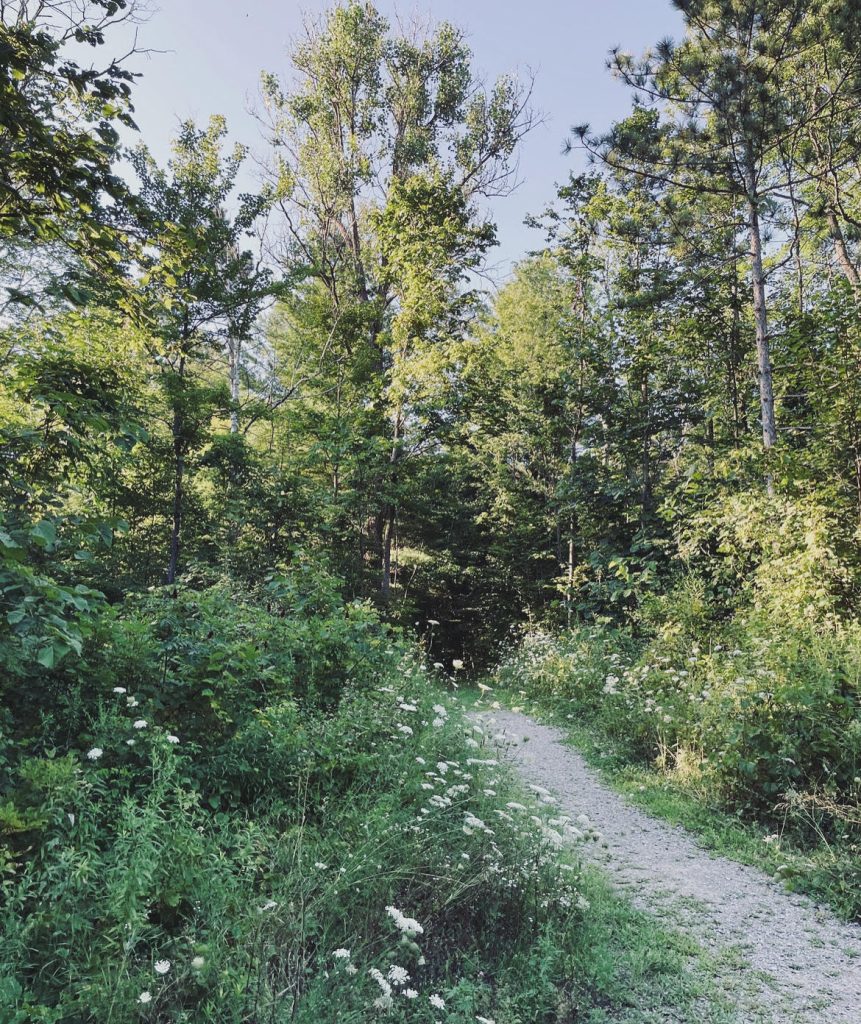
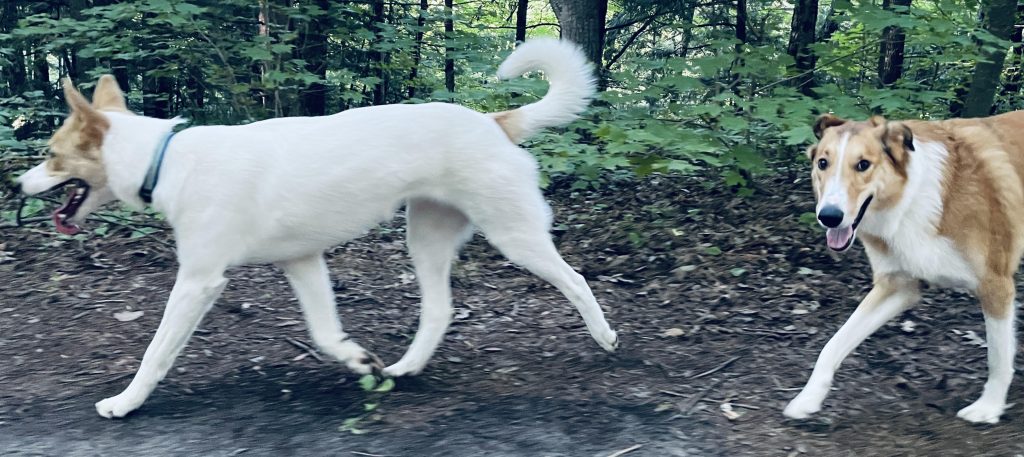
Walk long down there, and then up the hilly parts in the stone and sand, well wrought are the lands, green and the trees watch on. They seem taller today, and the overcast sky is gone and I can see the blue, the little clouds puffy and new. Breathe. Stretch. Queens Lace grows everywhere and there are places where the grasshoppers live and others that have dragonflies. Strange mushrooms to the side. A bee. A bird. A waving branch. Calm. Nobody is around. No souls.
I ask the lady, for it has arrived to me for some reason, ‘Who was that psychic that saw your grandmothers? And the one grandmother told the psychic that her posture should be better and the other grandmother…no…the same one had a bird, a parrot I think, that she kept in life, on her shoulder in the astral plane? I want to see her. I think I have a card somewhere. I also want to see spirit like that,- with plane eyes in everyday life…’ and the sun is strong for late day, and I am talkative suddenly, ‘…it is still summer, that is for sure.’
And we go far, determined, with a healthy and long stride, purposeful, happily or at least contentedly. The sumac is there, and the long and wide field briefly appears, side paths, more trees, a gravel way. We enter a turn that is full of purple flowers that grow somehow tall, to above knee height, taller than the others- they are intricate and strong, interesting and confident. They have each other, and live in large groups. ‘It’s as if on this turn, in this certain area exactly, everything pollinated or seeded and grew at at once,- w/the perfect mixture of the right soil and sun, rain and whatever it takes. Hey, want a soda cracker?. Do you know the other day I heard something in the bushes and stopped to see if I could see anything, and a large woodpecker jumped up and flew out?’
Eventually we turn that corner and begin the journey back. But it’s for the most part level ground. ‘It’s better to get the hilly parts done on the first half, when we are fresher and really setting out. Then just stroll back easily…’ and we do. It’s still bright for such a time a day. In the winter it will be dark at 5:30pm. We’d better take this while we can. In the summer I complain it’s too hot and in the winter I whine about the cold. Spring and autumn are my real times. Times of change and cool goodness and comfort. Liminal. Sweater weather as they say. But for now,- we better take it, better appreciate it, better go with it all…
Poetry from Tuliyeva Sarvinoz
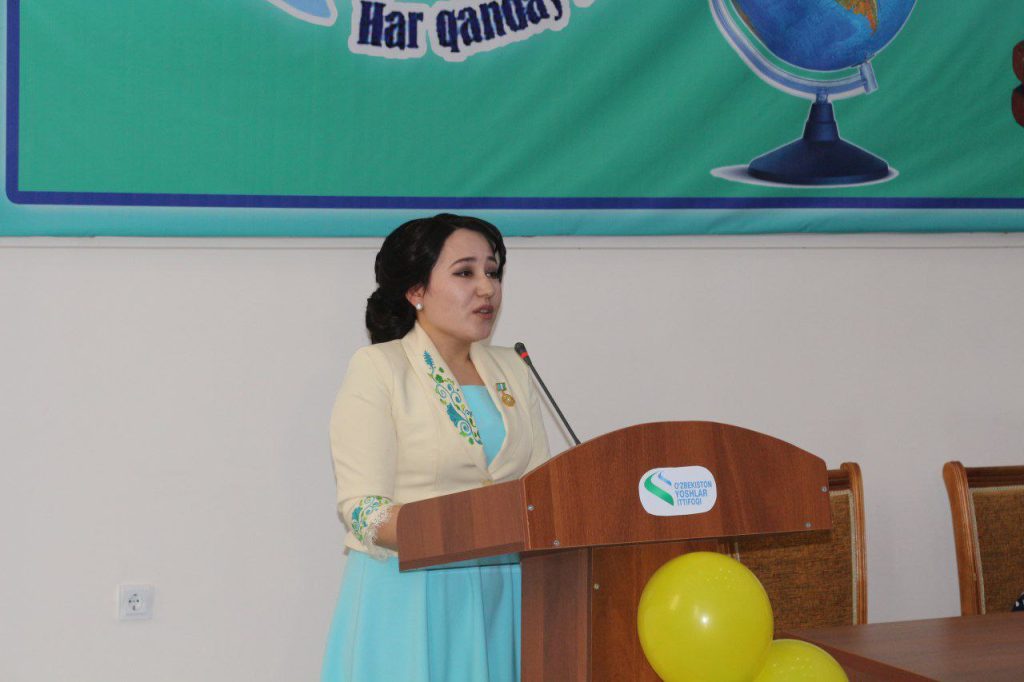
TIME IS A FLOWING RIVER
Everyone faces various difficulties and obstacles in their life. In such situations, a person sees himself as a helpless servant who can do nothing and becomes depressed.
So, what kind of people do you think can overcome difficult situations and endure difficulties?
“Behind every work there is good.” as they say, only people who believe in their knowledge and strength, who have full faith in their hearts, who strive forward despite any obstacles, will achieve success…
You can see someone’s life and achievements and say, “Oh, I wish I could achieve such achievements.”
But the work is not done with enthusiasm, it takes effort and self-confidence. Your goal in life is not to be like someone else, it is important to be yourself, to have your own place, your own self.
In this way, working tirelessly and acquiring new knowledge will help you.
Have you set a goal, try to achieve it! You can do it! You are a successful person! Move forward to great goals in life!
Tuliyeva Sarvinoz is the winner of the state award named after Zulfia (2019). She’s a teacher of native language and literature at Shaikhontohur District Vocational School, Tashkent and the author of the poetry books “Song of Peace”, “I am a Girl of Truth”, “Morning Poem”.
Poetry from Numonjonova Shahnozakhon
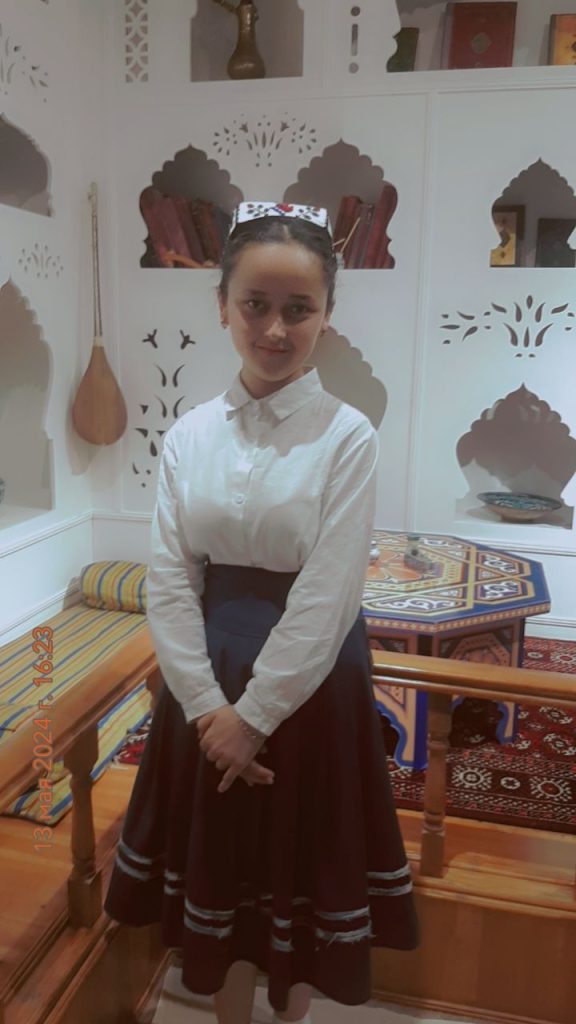
The goal If you strive for a goal, There will be a lot of friends. If you agree with me, The flower of desire also withers. Did you fall, stand up quickly Get up even if it hurts. keep your head up Don't be fooled. Good luck if it doesn't come Don't be sad and worried. Don't bend, don't bend. It is necessary to stand up for you. There is wisdom in everything, Do not wet your eyes. Enjoy this job, You will not be less than anyone. Life goes on Do not lose your passion. Your flower goes out of hand, Don't land the blackbird. Numonjonova Shahnozakhon. She was born on June 7, 2009 in Fergana region. Currently, she is studying at the creative school named after Erkin Vahidov organized by PIIMA. Her creative works have been published in several international magazines and has various international certificates. The creator's future goal is to become an international ambassador and receive a state award named after Zulfiya.
Poetry from Tuliyeva Sarvinoz
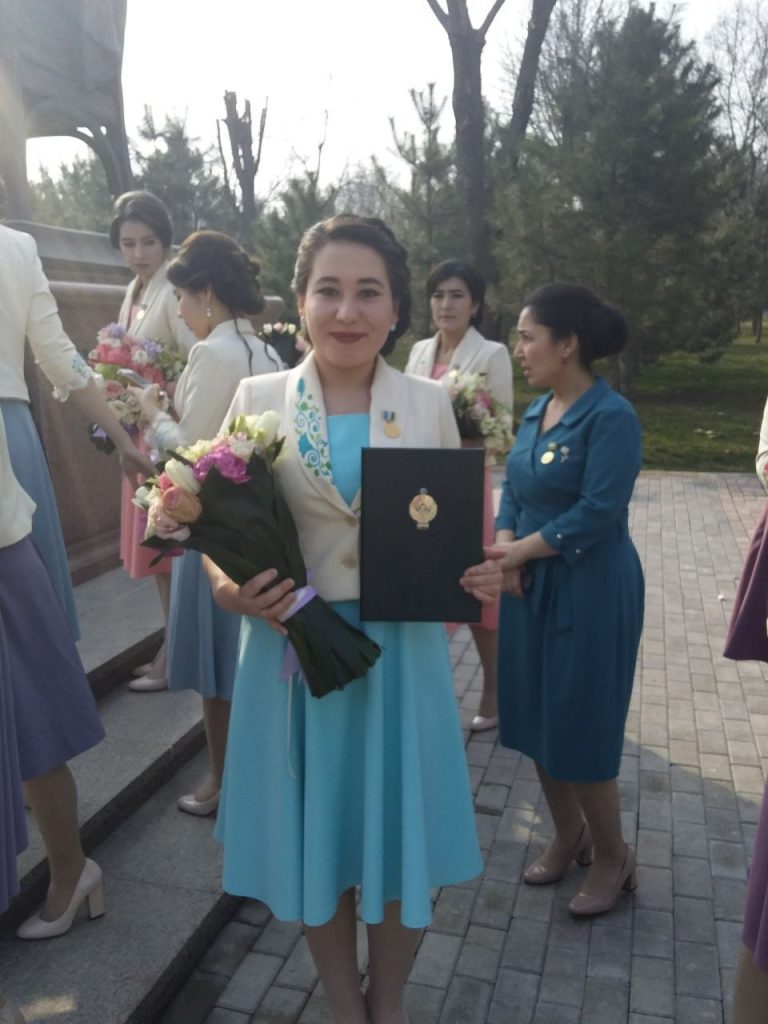
Boy! My heart is full of love, Only for you, my love, baby. The meaning of life of your smileys, Laugh more, I say, boy! My longing is for you, I miss you by my side. A tiny piece of my heart - You are restless like a bird. Everything is embodied in your eyes, To you who bound me. I fly to the skies To your one word "mother". My patience is endless, the sky is endless, My love for you, baby Come to me quickly Be my sustenance, boy! Snow No more cancellations, sir. These snows fell on my heart. My love can't be taken away Unfaithful friends with a broken heart. Closing overnight, Satisfied with the sustenance of white particles. Silver winter like a lover, He rested his head on her skirt. Slowly, whispering Washes snow bubbles. staring out She is waiting for her husband. Let your love shine. Tuliyeva Sarvinoz Uzbekistan. Born on November 8, 1999. Graduated from Alisher Navoi Tashkent State University of Uzbek Language and Literature (2023). The winner of the state award named after Zulfia (2019). Participant of the Zomin workshop of young artists (2019) She is the author of the poetry books "Song of Peace", "I am a Girl of Truth", "Morning Poem". Author of the creative collection "Nurli Izlar". About 100 creative works have been published in republican and foreign newspapers and magazines. His creative works and articles have been published in Russia, Turkey, Germany, USA, Kenya, Great Britain. Teacher of native language and literature at Shaikhontohur District Vocational School, Tashkent.
